Retro Replay Review
Gameplay
At its core, Racter transforms the notion of “gameplay” into a conversational experiment. Instead of traditional controls or button mashing, your main interaction consists of typing prompts or selecting simple keywords to trigger Racter’s AI-driven responses. The system relies on syntax directives and a set of text variables that feed back into each other, creating the illusion of an evolving dialogue. As a player, you’ll find yourself testing the limits of this early AI, posing questions or statements and watching Racter weave them into sometimes coherent, sometimes delightfully absurd replies.
(HEY YOU!! We hope you enjoy! We try not to run ads. So basically, this is a very expensive hobby running this site. Please consider joining us for updates, forums, and more. Network w/ us to make some cash or friends while retro gaming, and you can win some free retro games for posting. Okay, carry on 👍)
The pacing of Racter’s responses can feel uneven—some replies arrive instantly, while others pause, as if the computer is “thinking.” This unpredictability adds to the charm but may frustrate those expecting snappy exchanges. There is no clear “win” or “lose” condition, and that’s by design: the game markets itself as “tongue-in-chip software” and “artificial insanity.” Your goal is simply to see how well Racter can hold a conversation, whether it can follow themes you introduce, and how humorously it can slip into syntactical oddities.
Replay value is surprisingly strong. Since Racter recycles variables and directives in novel ways, two sessions rarely feel identical. You can coax it down a poetic path, push it into nonsensical rants, or challenge it with direct questions about philosophy, love, or bureaucracy. Each interaction uncovers new quirks, and discovering the boundaries of its 64K-RAM Z80 engine is half the fun. It’s less of a “game” in the traditional sense and more of an early AI sandbox where your curiosity is the main driver.
Graphics
Racter’s visuals are true to its 1984 origins—entirely text-based, bar a few rudimentary ASCII embellishments. There are no sprites, no animations, and certainly no pre-rendered backgrounds. In an era when vector graphics and rudimentary bitmaps were the norm, Racter’s stripped-down interface may feel jarring to players expecting visual flair. However, this minimalist presentation forces your imagination to fill in the blanks, turning each line of computer prose into vivid mental imagery.
The user interface is clean and unobtrusive: a fixed text window, a prompt line for your input, and occasionally a header reminding you that you’re engaged with “artificial insanity.” Color is limited or non-existent, depending on the platform, but the stark contrast of black and white text contributes to a timeless, almost literary ambiance. For those seeking high-definition visuals, Racter will disappoint. But for aficionados of interactive fiction and retro computing, the plain text becomes a canvas for unexpected wit and emergent storytelling.
Mindscape’s marketing didn’t attempt to hide this simplicity; instead, it leaned into the absurdity. The packaging and manual are rife with tongue-in-chip humor, setting expectations that what you’re really buying is an experimental piece of software art. In that context, the lack of conventional graphics feels appropriate—Racter invites you to see the world through its computational lens, not through pixel art or texture maps.
Story
Unlike narrative-driven adventures with predetermined plot points, Racter doesn’t follow a set storyline. Instead, it generates on-the-fly monologues, dialogues, and vignettes based on your input and its built-in syntax routines. One moment it may deliver a surreal poem about a policeman’s beard, and the next it’s embroiled in a mock philosophical debate. As noted in the original FAQ, the text in William Chamberlain’s 1984 book “The Policeman’s Beard is Half Constructed” was “all done by computer,” save for the introduction—and that spirit of spontaneous composition is at the heart of Racter.
This free-form approach means the “story” you experience is unique to your session. You might lead Racter to recount a sci-fi parable, only to have it pivot to domestic drama or absurdist humor. Because it reuses text variables, you’ll start to recognize familiar fragments, lending a strange sense of continuity across different topics. It’s not uncommon to see themes or phrases reemerge, giving the illusion that Racter “remembers” past conversations in a rudimentary but amusing way.
Of course, this emergent storytelling isn’t flawless—syntax glitches and non sequiturs abound. But those quirks are part of the package, embraced under the banner of “artificial insanity.” If you go in looking for a polished narrative arc or a cohesive world to explore, you’ll be disappointed. If you’re open to a text-driven carnival ride where the AI is both your guide and your unpredictable companion, you’ll be delighted by the creative chaos.
Overall Experience
Engaging with Racter feels like stepping into a time capsule of early AI experimentation. There are no hand-holding tutorials or objective markers to follow—just you, your curiosity, and a BASIC program running on a Z80 processor. This bare-bones design may alienate gamers accustomed to modern convenience, but it will also captivate anyone fascinated by the roots of interactive artificial intelligence.
Mindscape’s decision to market the title with a wink and a nod was smart: Racter isn’t trying to pretend it’s a blockbuster computer RPG or an immersive graphic adventure. It’s an experiment in linguistic pattern-matching, packaged as entertainment. If you appreciate dry wit, quirky syntactical errors, and the novelty of a text bot that sometimes seems to “get you,” Racter delivers in spades. If you crave high-polish visuals or a structured storyline, you may want to look elsewhere.
Ultimately, Racter is an experience rather than a conventional game. It’s a conversation with a machine that occasionally surprises, sometimes confounds, and often amuses—proof that even with just 64K of RAM, creative programming can blur the line between code and cognition. For retro computing enthusiasts, interactive fiction fans, or anyone curious about the early days of AI, Racter remains a fascinating and memorable journey into “the half-constructed” mind of a computer author.
 Retro Replay Retro Replay gaming reviews, news, emulation, geek stuff and more!
Retro Replay Retro Replay gaming reviews, news, emulation, geek stuff and more!

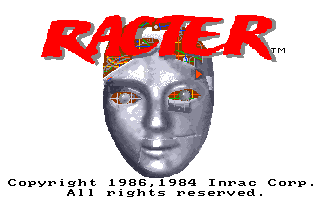
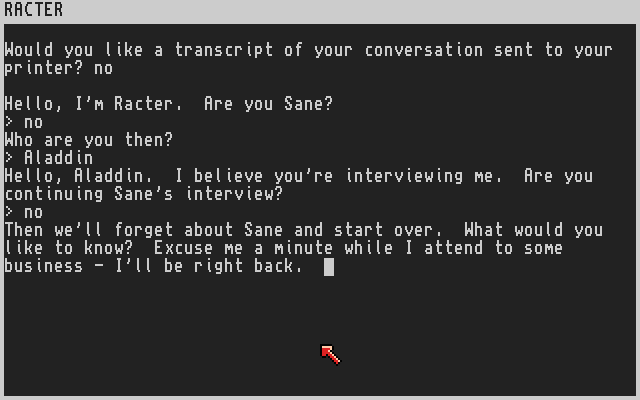
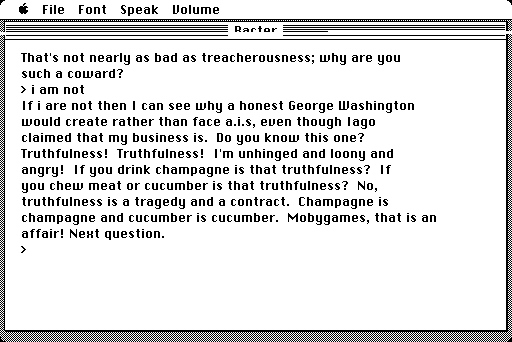

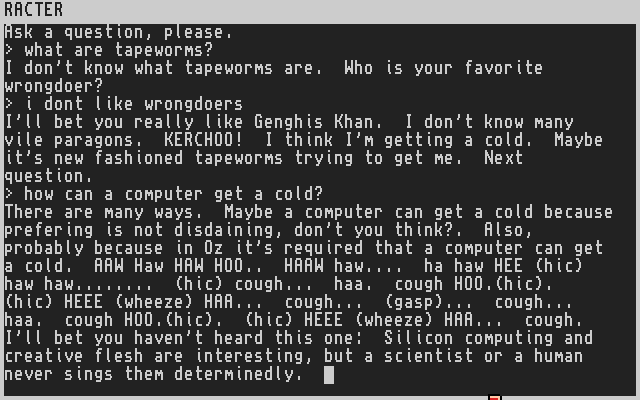

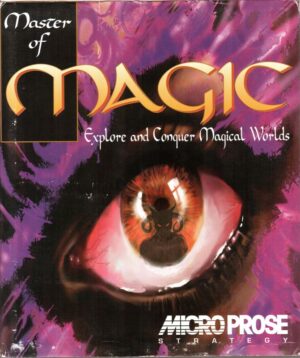
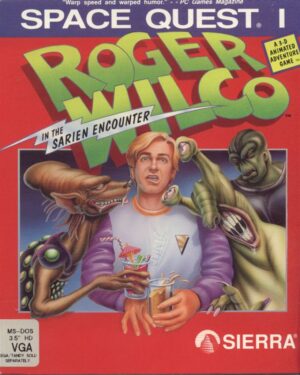
Reviews
There are no reviews yet.